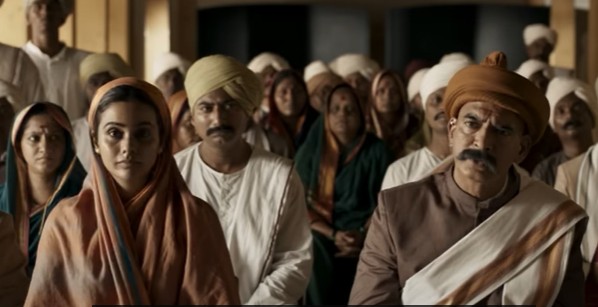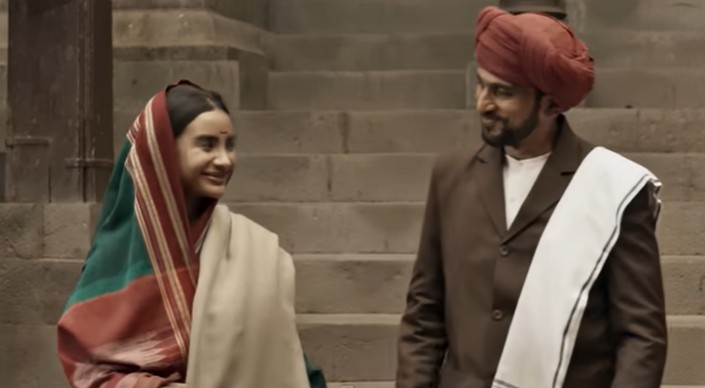April 25, 2025: April 25, 2025: Phule Review: At a time when Indian cinema often leans toward glorified retellings and sanitized nationalism, Phule arrives like a slow-burning matchstick against the darkness of social injustice. Directed by Ananth Mahadevan and led by compelling performances from Pratik Gandhi and Patralekhaa, this biographical drama doesn’t aim to entertain—it aims to awaken.
Set in 19th-century Maharashtra, Phule is the story of two revolutionaries—Jyotiba Phule and his wife Savitribai—who dared to dream of a more equal India. While others turned a blind eye to caste oppression and female illiteracy, the Phules chose the chalk over the chain. And this film, despite its imperfections, captures their courage with refreshing sincerity.
Rebellion in the Classroom and the Courtyard
The film opens not with grand speeches, but with a quiet rebellion—Savitribai, a child bride, learning to read. That act becomes a spark in a rigid society built on silence. As the couple goes on to open schools for girls and those deemed “untouchable,” the film tracks their battle not only against caste orthodoxy, but also against systemic apathy.
Patralekhaa gives one of her most powerful performances yet, portraying Savitribai as both tender and unyielding. Pratik Gandhi’s Jyotiba is less dramatic, more internal, but no less impactful. Together, they make the emotional core of the film believable and stirring.
Yet, Phule isn’t free from flaws. It tries to fit too many historical milestones—famines, mutinies, even the French Revolution—into a runtime that strains under the weight. The result is sometimes a whirlwind of events rather than an immersive character study.
Still, what Phule lacks in narrative focus, it makes up for in moral urgency.
Phule Review: A Film That Confronts Without Preaching

Unlike many biopics that dilute history, Phule isn’t afraid to show uncomfortable truths—caste brutality, Brahminical power structures, and the cost of speaking out. The film was, unsurprisingly, subject to censorship interventions, with references to certain caste groups and figures like Manu being softened or removed. But that only highlights how relevant the story still is.
Rather than backing down, Phule doubles down on its message: education is resistance. And telling these stories is itself an act of defiance.
To watch or not to watch
Phule may not be a cinematic masterpiece, but it is a bold, necessary watch. It doesn’t just recount history—it challenges the audience to see how much of that history still echoes today. For a film about literacy, it’s poetic that Phule ends up teaching us something far deeper: the cost of silence, and the power of knowledge.


